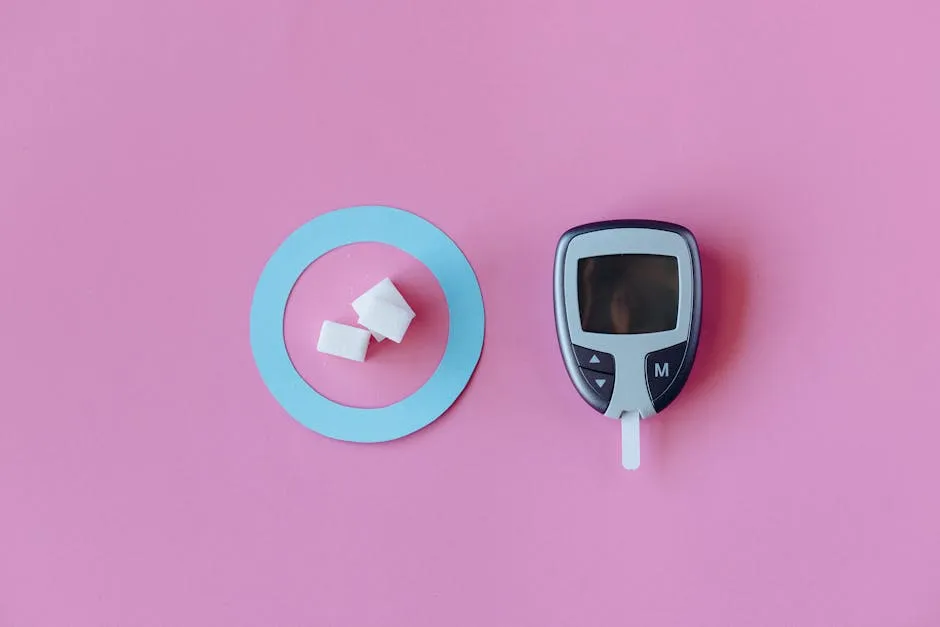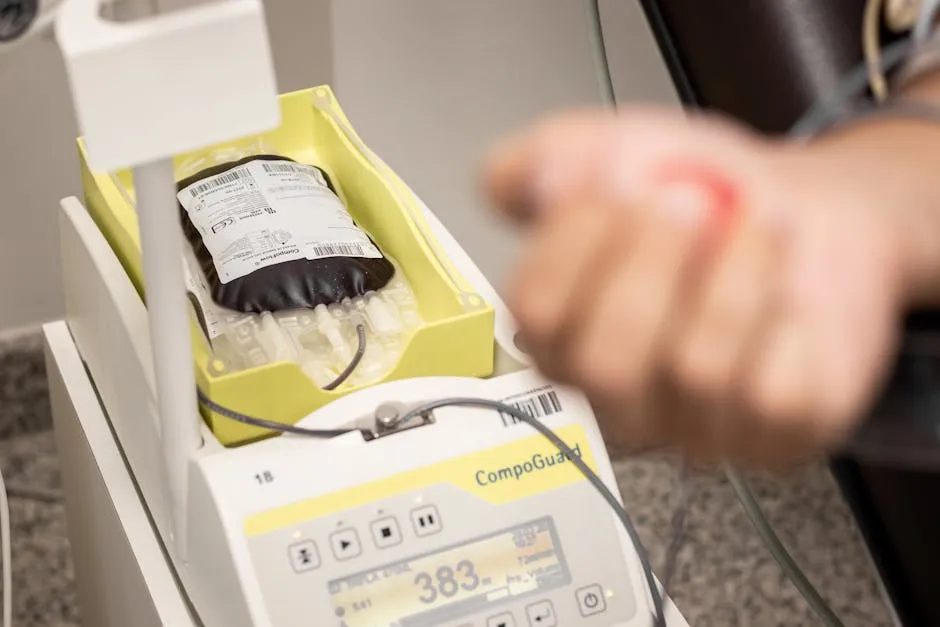
Why Do We Have Different Blood Types and What Do They Mean?
Introduction
Blood types are fascinating! They classify our blood based on specific antigens on the surface of red blood cells. These classifications matter for human biology and medicine. The main blood types are A, B, AB, and O. Each type can also be either Rh positive (+) or Rh negative (-). This leads to a total of eight unique blood types: A+, A-, B+, B-, AB+, AB-, O+, and O-. Understanding blood types is crucial. Why? Because it helps healthcare providers determine compatibility for blood transfusions and organ transplants. Imagine needing a blood transfusion and receiving the wrong type. Yikes! That could lead to serious complications. So, knowing your blood type can be a lifesaver. It’s not just a fun fact; it’s essential for your health. In addition, blood types can play a role in overall health. Some research suggests that certain blood types may be associated with specific health risks. Understanding these connections can help you make informed decisions about your health and well-being. So, let’s get into the nitty-gritty of blood types and what they mean!
Understanding Blood Types
What Are Blood Types?
Blood types are classifications based on specific antigens present on red blood cells. The ABO system is the most recognized, identifying blood as either A, B, AB, or O. Each blood type has unique characteristics based on the presence or absence of A and B antigens. Additionally, the Rh factor comes into play. If the RhD antigen is present, you’re Rh positive; if it’s absent, you’re Rh negative. This creates a combination of blood types. For example, if you have A antigens and are Rh positive, your blood type is A+. Genetics determine our blood types. You inherit your blood type from your parents, just like your eye color or hair texture. Various gene combinations can result in different blood types, leading to the rich diversity we see in the population today. Understanding these basics sets the stage for exploring the importance of blood types in medicine and health.
The ABO System
When it comes to blood types, the ABO system is the star of the show! It categorizes blood into four main types: A, B, AB, and O. Each type is defined by the presence or absence of specific antigens on the surface of red blood cells.- Type A: This type has A antigens and produces anti-B antibodies.
- Type B: This type has B antigens and produces anti-A antibodies.
- Type AB: This is the VIP of blood types! It has both A and B antigens but no antibodies, making it a universal recipient.
- Type O: The humble hero! It has no A or B antigens, but it produces both anti-A and anti-B antibodies. This makes Type O the universal donor, as it can be given to anyone without causing a reaction.

The Rh System
Next up, we have the Rh system. This system adds another layer of complexity to blood types by determining whether you’re Rh positive or negative. The Rh factor is based on the presence of the RhD antigen.- Rh Positive (+): If your red blood cells have the RhD antigen, you’re Rh positive.
- Rh Negative (-): If that antigen is missing, congratulations, you’re Rh negative!

Blood Type Testing
Blood type testing is a vital process in medicine. It helps determine compatibility for transfusions and organ donations. The most common method involves mixing a sample of blood with specific antibodies that target A and B antigens. If agglutination occurs, it indicates the presence of those antigens. There are also advanced technologies like microplate testing and automated blood analyzers. These methods offer quick results and high accuracy. Blood banks use these techniques to ensure safe blood supply. Testing blood types is crucial before transfusions. Administering the wrong type can trigger severe immune reactions, potentially leading to serious complications. Therefore, accurate blood typing is a cornerstone of transfusion medicine, ensuring patient safety.
Blood Type Compatibility
Importance of Compatibility
Blood type compatibility is essential for safe transfusions. If a person receives incompatible blood, their immune system may attack the transfused cells. This reaction is known as agglutination. It can cause symptoms ranging from fever to life-threatening complications, such as kidney failure. For example, if a person with type A blood receives type B blood, their anti-B antibodies will react against the B antigens, leading to severe consequences. Understanding compatibility prevents these dangerous reactions and is vital for effective medical care. Here’s a handy compatibility table for quick reference:| Blood Type | Can Receive | Can Donate To |
|---|---|---|
| A+ | A+, A-, O+, O- | A+, AB+ |
| A- | A-, O- | A-, A+, AB-, AB+ |
| B+ | B+, B-, O+, O- | B+, AB+ |
| B- | B-, O- | B-, B+, AB-, AB+ |
| AB+ | Any blood type | AB+ |
| AB- | AB-, A-, B-, O- | AB-, AB+ |
| O+ | O+, O- | O+, A+, B+, AB+ |
| O- | O- | All blood types |

Universal Donor and Recipient
The terms “universal donor” and “universal recipient” are key in transfusion medicine. The universal donor is type O negative (O-). This blood type can be given to any recipient without causing adverse reactions, making it a lifesaver in emergencies. On the flip side, the universal recipient is type AB positive (AB+). Individuals with this blood type can receive blood from any other type. This classification simplifies the process in critical situations where time is of the essence. Understanding these classifications can be crucial in emergency medicine, potentially saving lives when every second counts.
Rare Blood Types and Their Significance
Definition and Importance
Rare blood types are defined as those occurring in fewer than 1 in 1,000 individuals. This rarity creates unique challenges for those who possess them. Imagine needing a blood transfusion, only to discover that your blood type is as rare as a unicorn! The implications can be serious in medical emergencies, where finding a compatible donor becomes a race against time. Individuals with rare blood types often face difficulties during surgeries or transfusions. Blood banks may struggle to maintain adequate supplies of these rare types. In critical situations, finding suitable blood can be a daunting challenge. As a result, people with rare blood types are encouraged to register as blood donors. This proactive approach increases the chances of finding compatible blood when needed.
The Bombay Phenotype
A prime example of a rare blood type is the Bombay phenotype. Individuals with this unique blood type lack the A and B antigens entirely. This means they can only receive blood from other Bombay phenotype individuals. Despite its rarity, it highlights the complexity of blood types. The Bombay phenotype illustrates the significance of understanding blood compatibility. In transfusion medicine, knowledge of these rare blood types can save lives and prevent complications. In conclusion, rare blood types carry significant implications for individuals and healthcare providers. The challenges they pose highlight the importance of blood donation and awareness. Understanding these rare types can lead to better preparedness in medical situations.
The Bombay Phenotype
The Bombay phenotype is a rare blood type that lacks A and B antigens. Instead of the usual ABO classification, individuals with this phenotype have an H antigen that does not convert into A or B antigens. Imagine going to a blood bank, only to find out your blood type doesn’t fit the typical categories! This unique trait can complicate blood transfusions. People with the Bombay phenotype can only receive blood from other Bombay phenotype individuals. That’s like a secret club with very few members! In transfusion medicine, this rarity poses significant challenges. Blood banks must keep an eye out for individuals with this phenotype to ensure they have compatible blood available. This underscores the importance of understanding rare blood types in medical emergencies. Knowing about the Bombay phenotype is crucial for healthcare providers, as it can save lives when every second counts.
Health Implications of Blood Types
Blood Types and Health Risks
Research has linked blood types to various health risks. For instance, individuals with type A blood may have a higher risk of certain cancers, like stomach cancer. Meanwhile, those with type O blood often enjoy a protective advantage against severe malaria. This connection suggests that blood types might influence how our bodies respond to infections. Studies indicate that people with type B blood may have an increased risk of heart disease. The presence of A and B antigens could trigger different immune responses, affecting overall health. Blood type can also influence how our bodies fight off illnesses, making some individuals more susceptible than others. Understanding these correlations can help you manage your health proactively.
Lifestyle Considerations
Depending on your blood type, certain lifestyle and dietary recommendations might benefit you. For example, type O individuals are often advised to follow a high-protein diet. Think of lean meats, fish, and plenty of vegetables! Type A folks, on the other hand, may thrive on a vegetarian diet. Emphasizing fruits, vegetables, and whole grains can support their overall health. If you have type B blood, consider incorporating a balanced diet with meats and dairy. It’s essential to listen to your body’s needs. Lastly, individuals with AB blood types can enjoy a mix of diets, but should be mindful of their unique health risks. Monitoring your health based on your blood type can lead to improved well-being.
FAQs
Why is it important to know my blood type?
Knowing your blood type is vital for medical emergencies. In situations requiring transfusions, compatibility is crucial. Mismatched blood can trigger severe immune reactions, potentially leading to life-threatening complications. Being aware of your blood type ensures that healthcare providers can act quickly and safely during emergencies.
Can my blood type change?
Typically, your blood type remains constant throughout your life. However, changes can occur in rare cases, such as after a bone marrow transplant. In these instances, the recipient may adopt the blood type of the donor. Certain medical conditions can also affect blood type, but these cases are uncommon.
How can I find out my blood type?
There are several ways to find out your blood type. You can consult your physician, donate blood, or purchase an at-home blood typing kit. Blood typing involves mixing a sample of your blood with specific antibodies to determine your type.
Do blood types affect my diet?
The theory behind blood type diets suggests that each blood type may benefit from specific dietary guidelines. However, current scientific consensus is mixed. While some individuals may feel better following these diets, there is no solid evidence that blood type should dictate eating habits. It’s best to focus on balanced nutrition regardless of blood type.
What should I do if my blood type is rare?
If you have a rare blood type, consider registering as a blood donor. This can be crucial in emergencies when finding compatible blood is challenging. Stay informed about your health and maintain communication with healthcare providers regarding your blood type. Being prepared can make a significant difference in medical situations.
Additionally, if you’re into fitness, consider investing in Fitness Resistance Bands. They’re versatile and perfect for a home workout, making it easier to stay in shape no matter where you are. And for those who love to stay hydrated, a Reusable Water Bottle is a must-have. Staying hydrated is key to maintaining good health, and a stylish reusable bottle can make it fun!Understanding blood types is crucial for healthcare providers and can prevent complications during transfusions. Why do we have different blood types and what do they mean
All images from Pexels




